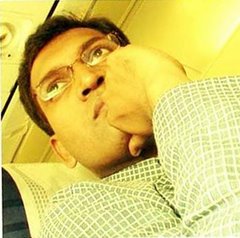
Take a look at any news source today and you’ll see the name of Libya’s de facto leader, Muammar al-Gaddafi. Look a little closer and you’ll see a multitude of spellings for the notorious politician’s surname such as Gaddafi, Kadafi and Qaddafi. Why does a name that has been making headlines for decades have so many varied spellings?
Transliteration is the reason – the transcription of a word, or in this case a name, into corresponding letters of another alphabet. The Arabic script is oftentimes unvocalized – in other words the vowels are rarely written out and must be furnished by a reader familiar with the language. As with Chinese and Hindi, the Arabic script contains a copious amount of diacritics – dots and accents added to a letter to change the sound. In addition, there seems to be an absence of any sort of authority for transliterating Arabic names.
The Arabic language is one of the most widely spoken Semitic languages in the world and the pronunciation of words varies with different across regions. Even among Arabic speakers, Arabic of North Africa is often incomprehensible to an Arabic speaker from the Gulf Region.
A famous roadblock for any Arabic to English translator is the Arabic “q”.” Depending on the region, pronunciation varies so much that the first letter of “Gaddafi” can be replaced with a “q”, “k” or “gh” sound. This helps to explain the numerous interpretations for “Gaddafi.”
The variation of spelling may depend on what news source you choose to gather your information from. The Times of India, Hindustan Times and other news papers in India along with the Associated Press and CNN favor “Gadhafi”, The New York Times spells it “el-Qaddafi” and the Los Angeles Times uses “Kadafi.” Interestingly, Al Jazeera, which uses “Gaddafi”, does not use the “el” article in the name while the New York Times does.
It is the original Arabic spelling that causes problems for those of us who use the Latin alphabet. The first letter of Gaddafi's name is Qaf in Arabic, which is, phonetically speaking, a voiceless, uvular plosive. It's like a K, but instead of the tongue making contact with the soft palate it is further back and touches the uvula. This explains why several Arabic words are spelt different ways - either Q or K - in English, eg Koran/Q'uran, burka/burqa. There are different dialects of Arabic, and in the Libyan dialect this letter often sounds like a G, hence the English spelling. The next letter is ḏāl or dhal, which is a voiced dental fricative, like the 'th' sound in the word 'these'. In Libya, this letter is often pronounced more like a D or Z.
According to the Associated Press Gaddafi pronounces his name Gath-thafi. As for the way he spells his name, back in the 1980s when he would print his name in English at the end of letters to the West he wrote El-Gadhafi. The Associated Press still uses the spelling Gadhafi, but without the El.
August 25, 2011
GADDAFI, OR QADDAFI, OR KADHAFI, OR KHADAFY ...?
Subscribe to:
Post Comments (Atom)


2 comments:
Thanks Dinesh...That was quite interesting......
A very little known fact about Qaddafi or Gaddafi-he is a big farter? Once John Simpsom, the international editor of the BBC went to interview him. Gaddafi or Qaddafi could not control his fart even when the camera was rolling. His farts were captured by the sensitive microphones attached to the camera.
Post a Comment